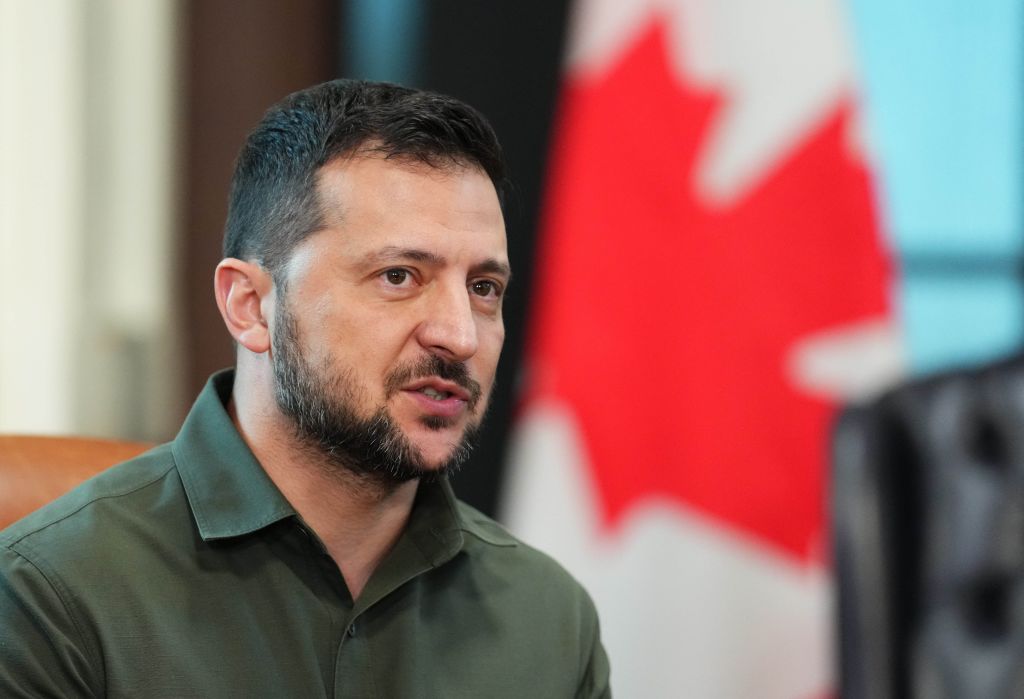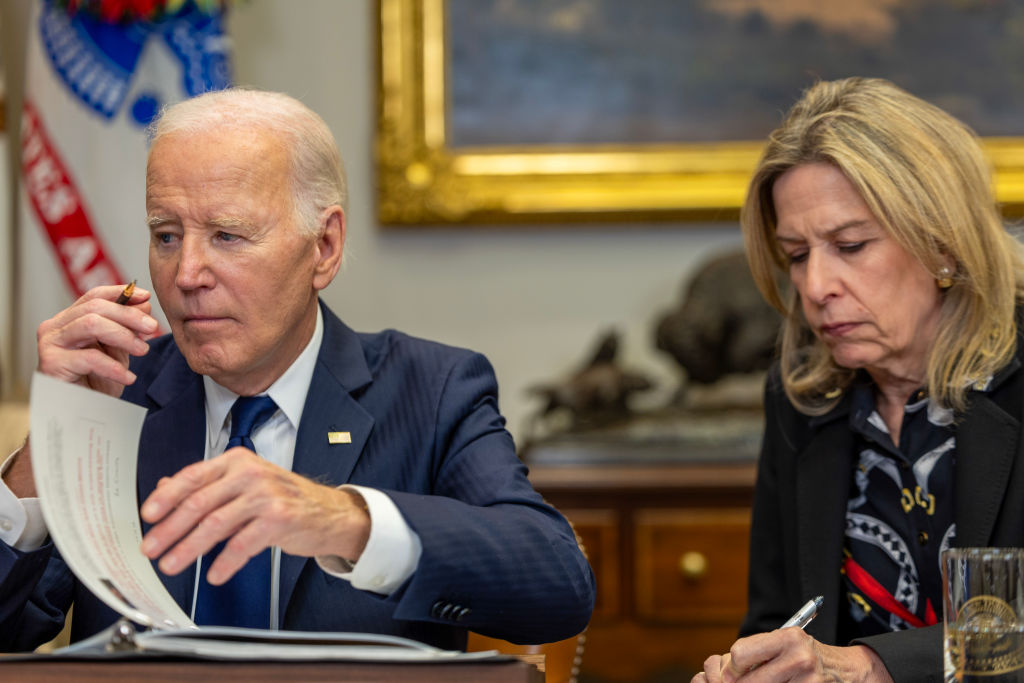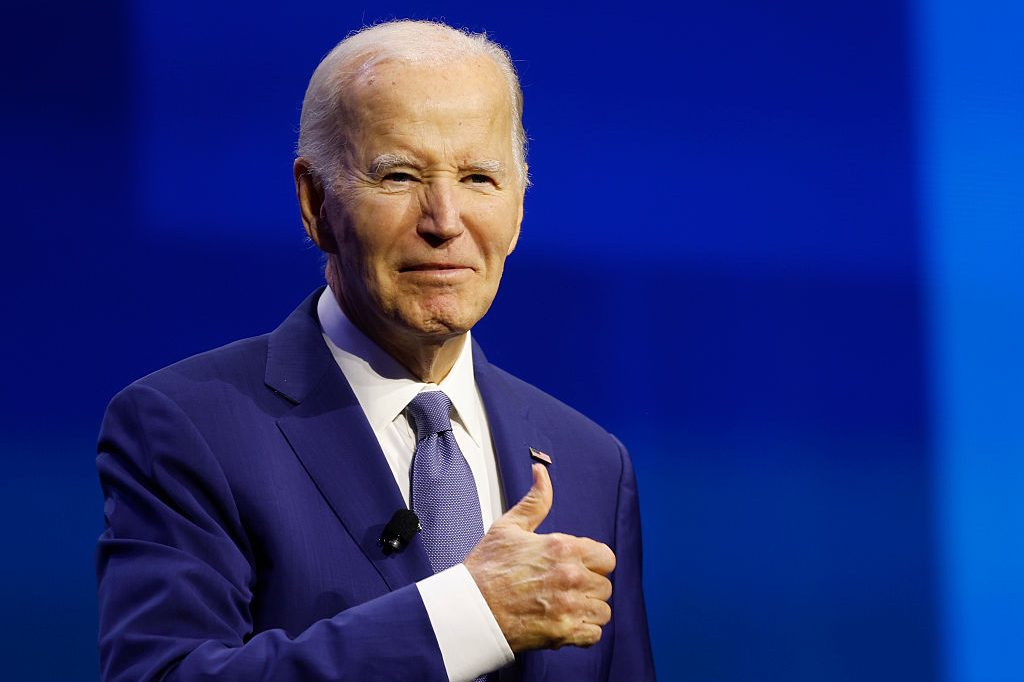When Volodomyr Zelensky came to Washington last December, he inhabited a very different political environment than he does today. At the time, Ukraine remained a largely bipartisan effort. Polls found most Republicans supported sending continued weapons to Ukraine — just nine months later, the faction opposed to sending even one more dime to support Zelensky’s cause in the conflict has dramatically soured.
This is due in part to the very predictable slog of this war, but it’s also due to choices by Joe Biden’s administration. Much as they have turned on the spigot in a time of economic uncertainty and rising inflation concerns, the Biden team has even received criticism from their own party for dragging their feet on the weapon systems Ukraine claims it needs to win the war.
The administration is essentially reduced to funding a very expensive stalemate, one that looks headed toward a Korea-like end.
On Thursday, twenty-nine Republicans in the Senate and House wrote to express their opposition to “open ended” funding, and it’s fair to say they speak for a much larger faction within their party that shares their views. Addressing the head of the White House Office of Management and Budget, they write:
The American people deserve to know what their money has gone to. How is the counteroffensive going? Are the Ukrainians any closer to victory than they were six months ago? What is our strategy, and what is the president’s exit plan? What does the administration define as victory in Ukraine? … It would be an absurd abdication of congressional responsibility to grant this request without knowing the answers to these questions.
As the WSJ reports:
While the White House and bipartisan majorities in both chambers of Congress support further aid for Ukraine in its war with Russia, the small group of dissenters would be enough to block or at least delay procedural steps needed to bring any Ukraine funding measure to the Senate and House floors for up-or-down votes — a warning sign of the political challenges ahead for Zelensky and his congressional allies.
Florida Congressman Byron Donalds, who signed onto the letter, told reporters this week: “There’s no money in the House right now for Ukraine. It’s not there… It’s not a good time for [Zelensky] to be here, quite frankly.”
It’s important to know this isn’t just an expression of distrust in Ukraine not to squander the money or engage in corruption — it’s as much an expression of distrust in the Biden administration to offer any conceivable path toward ending the war anytime soon.
The anniversary of the Afghanistan debacle, the embarrassing Iran hostage deal and the meandering performance of public senility Biden showed at the G20 all serve to make Republicans feel that this current leadership has no path to victory. Paired with an incredibly lax border policy and major cities that lack the resources to handle an invasion of migrants, voters are making their feelings known. And in yet another of so many echoes of the 1970s in our current political moment, they would rather bring the money back home than embrace a Reaganite policy abroad.
The political appeals of those who challenge this view within the GOP presidential ranks, with the exception of Nikki Haley, have fallen on deaf ears. And in Washington, the close ties with the unpopular and aged leadership of the Senate seems uninterested in working to change the minds of constituents or colleagues. They’d rather berate them, or witness them be berated, than do the work demanded of statesmen — the work Biden once seemed unwilling and now seems incapable of doing himself.
For Zelensky, there are limits to what he can achieve with one more drab olive green reminder of his needs in Washington. He risks putting himself in a position where his cause becomes monopartisan, dependent on the success of the Democratic Party and the foreign policy blob. We’re not there yet, but the path toward such an outcome is clear. If that’s the result, it will be a failure not just of the Biden administration’s embarrassing team, but of the West as a whole.

























